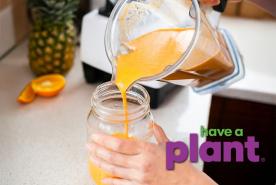Knowing what to eat when you have kidney disease is very important. Kidneys filter wastes created by the foods you eat to help to keep the right balance of nutrients and minerals in your blood and in your body.
We all need protein in our diet every day. Protein is used to build muscle, heal, fight infection, and stay healthy. Protein needs vary based on your age, sex and overall general health. Protein in the diet comes from both animal and plant sources.
Animal sources of protein have all the essential amino acids (the building blocks of protein). Animal sources of protein vary in their amount of fat, with fatty cuts of red meat, whole–milk dairy products, and egg yolks being the highest in saturated fat (less healthy for the heart). Fish, poultry, and low–fat or fat–free dairy products are lowest in saturated fat.
Plant sources of protein are low in one or more of the essential amino acids. Plant sources of protein include beans, lentils, nuts, peanut butter, seeds and whole grains. A plant-based diet can meet protein needs with careful planning by eating a variety of plant-based foods. Another bonus with plant proteins is that they are low in saturated fat and high in fiber.
You need protein every day to meet your body's needs, but if you have kidney disease, your body may not be able to remove all the waste from the protein in your diet. Excess protein waste can build up in your blood causing nausea, loss of appetite, weakness, and taste changes.
CKD Without Dialysis: Limit Protein
The more protein waste that needs to be removed, the harder the kidneys need to work to get rid of it. This can be stressful for your kidneys, causing them to wear out faster. For people with kidney disease who are not on dialysis, a diet lower in protein is recommended. Many studies suggest that limiting the amount of protein and including more plant-based foods in the diet may help slow the loss of kidney function.
Know the Right Amount of Protein for You
The exact amount of protein you need depends on your body size, your nutritional status and your kidney problem. Since too little protein can lead to malnutrition at any stage of kidney disease, ask your healthcare professional about meeting with a kidney dietitian to find out the amount and type of protein that is right for you, even in the earliest stages of kidney disease. Your healthcare professional will watch your kidney function for any necessary diet or medicine changes.
Download the NKF fact sheet in Multiple Languages: Kidney Disease and Protein
- Download the NKF fact sheet: Arabic
- Download the NKF fact sheet: Bosnian
- Download the NKF fact sheet: Burmese
- Download the NKF fact sheet: Dari
- Download the NKF fact sheet: English
- Download the NKF fact sheet: Farsi
- Download the NKF fact sheet: Kinyarwanda
- Download the NKF fact sheet: Nepali
- Download the NKF fact sheet: Pashto
- Download the NKF fact sheet: Somali
- Download the NKF fact sheet: Spanish
- Download the NKF fact sheet: Swahili
- Download the NKF fact sheet: Vietnamese











